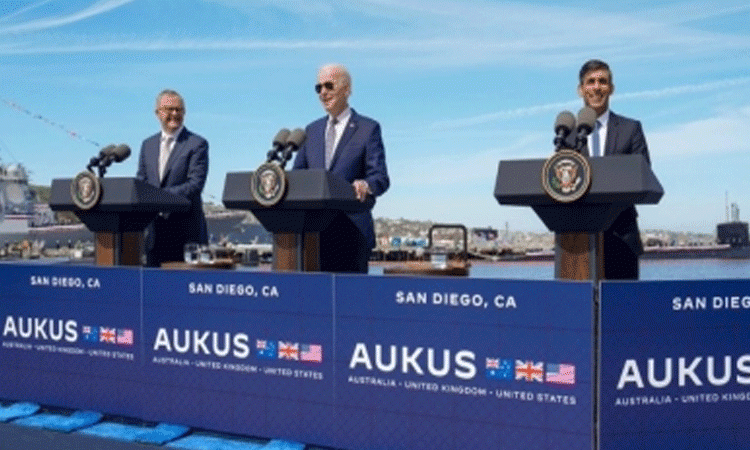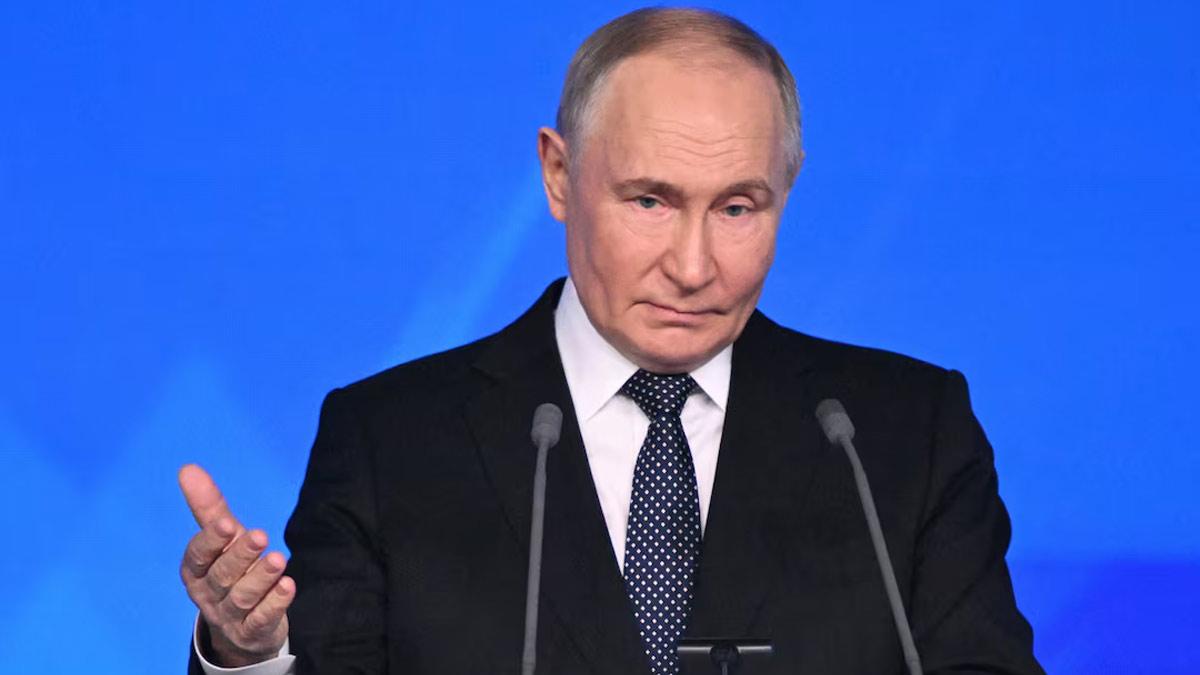Aimed at countering China's influence in the Indo-Pacific region, leaders of the US, UK and Australia have unveiled new details of their plan to create a fleet of next generation nuclear-powered submarines.
Under the AUKUS deal outlined on Monday, Australia will first receive at least three nuclear-powered submarines from the US, reports the BBC.
Meanwhile, members of the Royal Australian Navy (RAN) will also be embedded at US and UK submarine bases from this year to gain the necessary skills to use the submarines.
Also read |Iran says prisoner swap possible should US acts 'realistically'
From 2027, the US and UK will base a small number of nuclear subs at a RAN base in Perth, Western Australia, before Australia buys three American Virginia-class submarines in the early 2030s - with options to purchase two more.
After that, the plan is to design and build an entirely new nuclear-powered submarine for the UK and Australian navies, called SSN-AUKUS.
This attack craft will be built in the UK and Australia to a British design, but use technology from all three countries.
The interim and future boats will give Australia submarines which can travel further and faster than its existing fleet, with cruise missiles that could strike targets on land and at sea.
The submarines will however, not carry nuclear weapons and US, Australian and British officials have insisted the plans are consistent with international non-proliferation rules, despite Chinese protestations.
Also read |'Banking system is safe': Joe Biden reassures markets, people
Addressing reporters at the Point Loma Naval Base in San Diego while being flanked by the Prime Ministers of Australia and the UK, Anthony Albanese and Rishi Sunak, respectively, US President Joe Biden called AUKUS a "powerful entity".
"Forging this new partnership, we're showing again how democracies can deliver our own security and prosperity... not just for us but for the entire world.
"Today, as we stand at the inflection point in history, where the hard work of enhancing deterrence and promoting stability is going to affect the prospects of peace for decades to come, the US can ask for no better partners in the Indo-Pacific, where so much of our shared future will be written," CNN quoted Biden as saying.
The President stressed that the US has "safeguarded stability in Indo-Pacific for decades, to the enormous benefits of nations throughout the region from ASEAN to Pacific Islanders to the People's Republic of China".
"In fact, our leadership in the Pacific has been the benefit to the entire world. We've kept the sea lanes and skies open and navigable for all. We've upheld basic rules of the road."
On his part, Sunak directly named China as a cause for concern, CNN reported.
"China's growing assertiveness, the destabilizing behaviour of Iran and North Korea all threaten to create a world defined by danger, disorder and division.
"Faced with this new reality, it is more important than ever, that we strengthen the resilience of our own countries," he added.
Meanwhile, Albanese said the submarine plan would create thousands of new jobs and marked the "biggest single investment in Australia's defence capability in all of its history".
"This will be an Australian sovereign capability, commanded by the royal Australian navy and sustained by Australian workers in Australian shipyards with construction to begin this decade," the BBC quoted the Prime Minister as saying.
He also noted that the agreement marks the first time in 65 years and only the second time in history that the US has shared its nuclear propulsion technology.


















